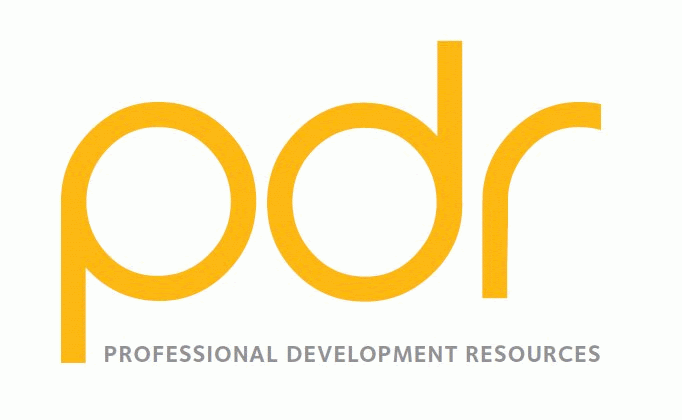
Florida-licensed occupational therapists have a biennial license renewal with a February 28th deadline, odd years. Twenty-six (26) hours of continuing education are required for licensure. Two (2) hours of Preventing Medical Errors and two (2) hours of Florida Occupational Therapy Laws and Rules are required at each renewal. One (1) hour of HIV/AIDS is required for the first renewal only. Twelve (12) hours of home study are allowed if AOTA approved.
Click Here To See Online Continuing Education Courses for Occupational Therapists!
Professional Development Resources is an American Occupational Therapy Association (AOTA) approved provider of continuing education (#3159). The assignment of AOTA CEUs does not imply endorsement of specific course content, products, or clinical procedures by AOTA. Professional Development Resources is also approved by the Florida Board of OT Practice (#34) and is CE Broker compliant.
Continuing Education Requirements
Occupational therapists licensed in the state of Florida have a license renewal every two years with a deadline of February 28th, odd years. Twenty-six (26) continuing education hours are required to renew a license. Two hours of Preventing Medical Errors and two hours of Florida Occupational Therapy Laws and Rules are required at each renewal. One hour of HIV/AIDS is required for the first renewal only. Twelve (12) hours of home study are allowed if AOTA approved.
Information obtained from the Florida Board of Occupational Therapy on August 6, 2014.
Continuing Education Courses for Occupational Therapists:
Caregiver Help Part I: Coping with Anger and Guilt is a 2-hour online video CE course. The emotional stress of caring for persons who are aging, chronically ill or disabled can be debilitating for family members as well as professional caregivers. This course addresses caregiver anger and guilt, and provides a three-step process that helps caregivers develop an attitude of what is described as “creative indifference” toward the people, situations and events that cause them the greatest amount of emotional stress. By gaining insights into how degenerative and progressive diseases affect the life of the caregiver, the mental health professional will be in a better position to empathize with the caregiver’s situation and provide strategies that will help them manage the stress of caring for someone whose situation will never improve. The significance of honoring and supporting caregivers’ feelings and helping them understand the importance of self-care can not only improve their physical and emotional well-being, but can also have a huge impact on the quality of care they are able to provide to their care receiver. This course includes downloadable worksheets that you can use (on a limited basis) in your clinical practice. Course #20-84 | 2014 | 15 posttest questions
Living a Better Life with Chronic Pain: Eliminating Self-Defeating Behaviors is a 5-hour online course. Certainly no one would choose a pain-filled body over a healthy, pain-free body. Yet every day, people unwittingly choose actions and attitudes that contribute to pain or lead to other less-than-desirable consequences on their health, relationships or ability to function. These actions and attitudes are what are called self-defeating behaviors (SDBs) and they keep us from living life to the fullest—if we let them. This course is a self-instructional module that “walks” readers through the process of replacing their self-defeating chronic pain issues with healthy, positive, and productive life-style behaviors. It progresses from an analysis of the emotional aspects of living with chronic pain to specific strategies for dealing more productively with it. Through 16 guided exercises, readers will learn how to identify their self-defeating behaviors (SDBs), analyze and understand them, and then replace them with life-giving actions that lead to permanent behavioral change. Course #50-12 | 2014 | 49 pages | 35 posttest questions
Prescription Drug Abuse is a 3-hour online course. Prescription drug abuse is on the rise. Pharmaceuticals like OxyContin®, Adderall®, and Xanax® are some of the most commonly abused prescription drugs. For some prescription drug addicts, medication was originally taken as prescribed – until they started developing a tolerance for it. For others, members of their peer group began to abuse prescription drugs because they are easily accessible and relatively inexpensive on the street. Prescription drug abuse also affects those who don’t use – through increased costs and the inconveniences of increased security at pharmacies. Treatment is comprised of a series of steps, including detoxification, inpatient/outpatient treatment, and maintenance. In some cases, patients must be closely monitored because of the potential for withdrawal effects. Once treatment is completed, there are various options for maintaining sobriety. Laws are being tightened, and some medications have become difficult to find due to the increased rate of prescription drug abuse. Course #30-61 | 2012 | 30 pages | 20 posttest questions
Animal Assisted Therapy is a 2-hour online CE course. In Animal-Assisted Therapy (AAT) the human-animal bond is utilized to help meet therapeutic goals and reach individuals who are otherwise difficult to engage in verbal therapies. AAT is considered an emerging therapy at this time, and more research is needed to determine the effects and confirm the benefits. Nevertheless, there is a growing body of research and case studies that illustrate the considerable therapeutic potential of using animals in therapy. AAT has been associated with improving outcomes in four areas: autism-spectrum symptoms, medical difficulties, behavioral problems, and emotional well-being. This course is designed to provide therapists, educators, and caregivers with the information and techniques needed to begin using the human-animal bond successfully to meet individual therapeutic goals. Course #20-62 | 2012 | 30 pages | 20 posttest questions
Like this:
Like Loading...




















